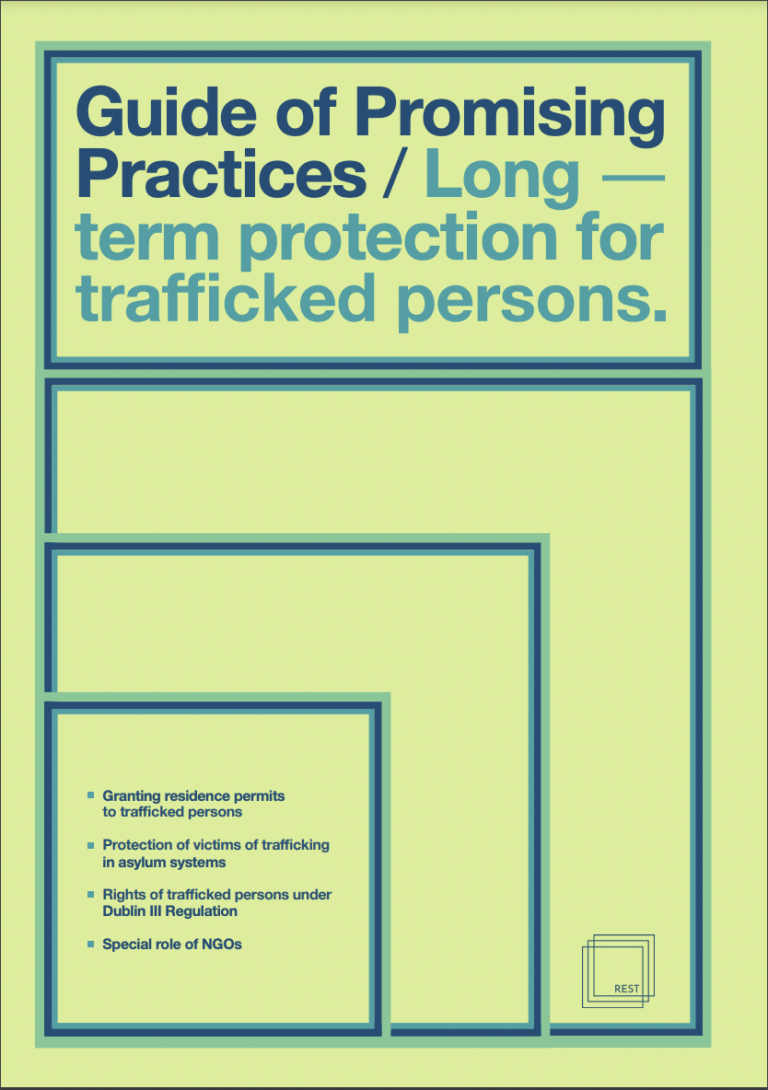Starting from the identification of gaps and barriers in the effective protection of trafficked persons, the guide shares promising existing practices in line with a coherent referral to the most appropriate channel of protection securing their rights and access to a durable solution. Trafficked persons’ access to long-term or permanent residence is critical for their safety, stability, and future perspective. The regularisation of their stay is an integral part of their right to effective remedies and access to justice and it should be granted in the practice.
This guide concentrates on the gaps identified in the effective access to a long-term protection for victims of trafficking. The international and European standards lay out a solid base to ensure the safety and protection of victims and to provide them with assistance. The guide targets the issue of an effective access to a regular stay and protection, focusing on both residence permit scheme and international protection systems.
This guide is directed to practitioners working directly with trafficked persons, legal counselors in aliens’ law and asylum law as well as deciding authorities. The guide highlights crucial aspects in order to ensure the access to rights for victims of trafficking. The first part covers important steps that have to be considered in terms of a temporary residence permit for trafficked persons. The second one calls attention to the gaps in granting international protection to trafficked persons.

